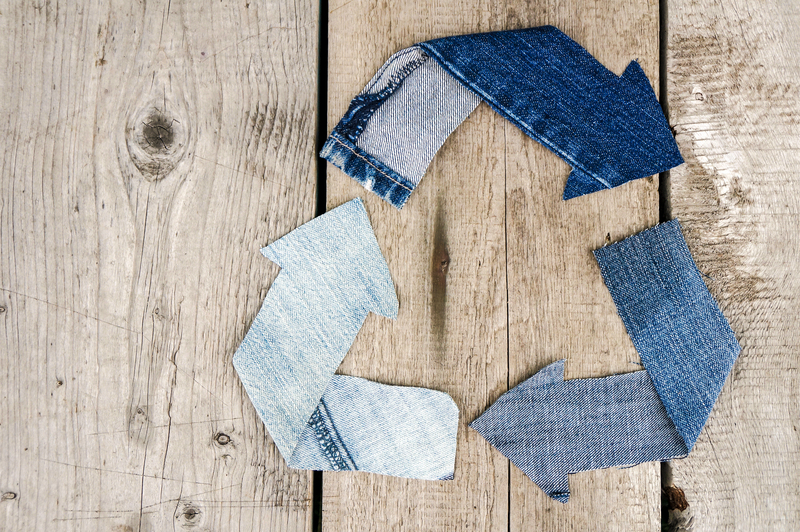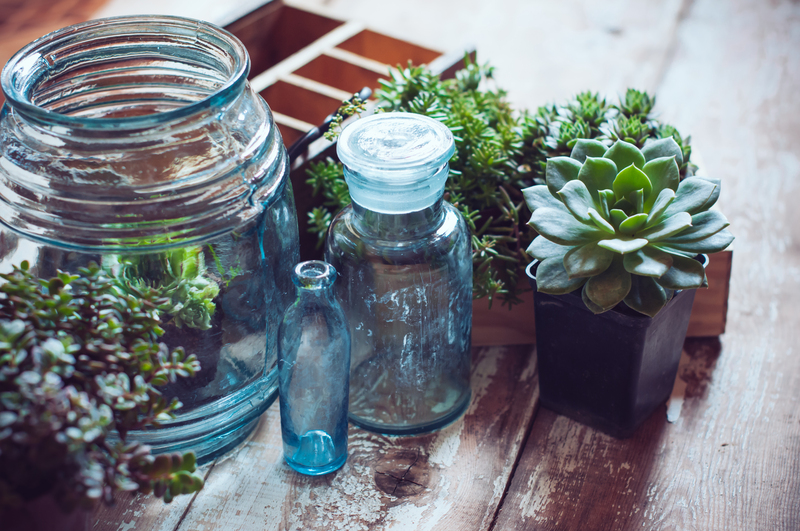Revolutionize Your Home Recycling: Simple Tips for a Greener Future
In today's world, recycling at home has become an essential part of leading a sustainable lifestyle. With rising concerns about landfill waste and environmental sustainability, learning how to upgrade your household recycling habits is crucial. This comprehensive guide will walk you through practical and innovative strategies to revolutionize your home recycling, empowering you to contribute to a greener and healthier planet. If you're ready to make a real difference, read on to discover expert recycling tips that can change your household's environmental impact forever.
Why Is Home Recycling Important?
Understanding the importance of recycling at home is the foundation for making meaningful changes. Household recycling is not just about sorting plastics and paper; it directly impacts:
- Reducing landfill waste
- Conserving natural resources
- Lowering pollution levels
- Saving energy compared to manufacturing with raw materials
- Protecting wildlife and ecosystems
Embracing better recycling methods also educates family members and sets a positive example for your community.

Setting Up Your Home for Recycling Success
Before you can revolutionize your household recycling efforts, you need to create a solid foundation. Here's how to get started:
1. Designate a Dedicated Recycling Station
Organization is key. Set up a central recycling area in your kitchen, garage, or utility room. Use clearly labeled bins for each material, such as:
- Plastic
- Glass
- Metal
- Paper & Cardboard
This approach makes it easier for every household member to participate in eco-friendly recycling.
2. Educate Household Members
Revolutionizing your recycling habits is a team effort. Teach everyone in your home about:
- What can and can't be recycled locally
- How to properly rinse containers
- The importance of flattening cardboard for efficient storage
Consider posting a simple chart or guide above your recycling area as a reminder.
3. Get to Know Your Local Recycling Program
Municipal recycling guidelines can greatly differ from one community to another. Visit your city or county's website and print out their recycling rules. Pay attention to:
- Accepted materials and contamination risks
- Collection schedules
- Drop-off center locations for specialty items
Staying informed ensures you're not accidentally sending recyclables to landfill or contaminating batches.
Simple Yet Powerful Home Recycling Techniques
Ready to level up your green routine? These actionable home recycling tips will help you create lasting change:
1. Rinse and Dry Before Recycling
Remove food residue from your recyclables. Dirty containers can contaminate entire loads, leading them to be sent to landfill. Quickly rinse and dry plastic, glass, and metal items before tossing them into bins.
2. Avoid Wishful Recycling ("Wishcycling")
Many people toss questionable items into the recycling bin, hoping they'll be processed. This wishcycling actually makes sorting harder and can ruin whole batches. When in doubt, check your local guidelines or search online for advice.
3. Upcycle Before You Recycle
Reusing items comes before recycling in the waste hierarchy. Before throwing something away, ask: Can it be repurposed around the house?
- Use jars as storage containers
- Convert cardboard boxes into crafts or organizers
- Turn old clothes into cleaning rags
Upcycling reduces waste and gets creative juices flowing!
4. Compost Organic Waste
Food and yard waste do not belong in your recycling bin. Instead, set up a simple compost system to divert organic matter from landfill, enriching your garden in the process.
5. Recycle Electronics Responsibly
Old electronics and batteries often contain hazardous materials. Many municipalities offer e-waste recycling programs or collection events. Check where to drop off:
- Phones, chargers, and computers
- Old TVs and monitors
- Batteries, light bulbs, and small appliances
Proper disposal keeps toxins out of the environment while recovering precious metals for reuse.
Advanced Strategies to Maximize Home Recycling Impact
1. Buy Products with Recyclable or Recycled Packaging
Let your purchases support the environment. Choose goods packaged in recyclable materials like glass, metal, or certain plastics. Even better, select products made from post-consumer recycled (PCR) content. This helps close the loop of material reuse.
2. Cut Down Single-Use Plastics
Single-use plastics--like grocery bags, straws, and water bottles--clog recycling systems and pollute habitats. Invest in:
- Reusable shopping bags
- Sturdy water bottles and coffee cups
- Bulk food containers
Small changes here make a huge difference to your home's recycling success.
3. Advocate and Inspire Others
Encourage neighbors, friends, and your local community to embrace better recycling. Share your knowledge on social media, volunteer at local clean-up events, or start a recycling initiative in your neighborhood or local school.
4. Monitor and Track Your Waste
Regularly review your family's recycling habits. Keep a waste diary for a week to notice patterns and areas where you can improve. Celebrate milestones--like reducing landfill waste by half or composting all your kitchen scraps.
5. Try Terracycling and Specialized Recycling Programs
Certain products, like snack wrappers, toothbrushes, or beauty containers, aren't always accepted in curbside recycling. Terracycle and similar organizations offer mail-in recycling boxes for hard-to-recycle items. Check for supermarket or brand-specific take-back schemes as well.
Common Myths and Mistakes About At-Home Recycling
Myth #1: Everything with a Recycling Symbol Goes in the Bin
The chasing arrows symbol does not always mean an item is curbside recyclable. Always check local guidelines and look up the number inside the triangle.
Myth #2: Plastic Bags Belong in Curbside Recycling
No! Plastic bags can jam recycling machinery. Instead, take them to designated store drop-offs or reuse them at home.
Myth #3: It's Okay to Leave Liquids in Containers
Liquids cause contamination and leaks. Rinse and dry all containers before recycling them.
Innovative Home Recycling Tools and Gadgets
- Smart Bins: Automated sorting bins with sensors help families recycle accurately.
- Label Makers & Signage: Make bins clear for everyone--especially children.
- Food Scrap Composters: Electric or countertop units speed up the composting process indoors.
- Stackable Bins: Ideal for small spaces--maximize your organization.
Greener Home, Greener Future: Key Benefits of Home Recycling
- Cleaner living environment
- Reduced landfill use
- Lower energy and water consumption
- Resource conservation
- Educated, engaged community members
With these benefits, it's clear how impactful revamping your home recycling strategy can be for both your family and the world at large.

Inspiring Home Recycling Success Stories
Here are a couple of stories to illustrate how simple changes can inspire green living:
- The Johnson Family started composting and cut their trash output by half, saving money on waste collection.
- Sabina introduced recycling stations in her apartment complex and boosted resident participation rates by 70%.
Let these stories fuel your motivation!
Frequently Asked Questions (FAQs) About Home Recycling
- Q: What plastics can I recycle at home?
A: Most curbside programs accept #1 (PET) and #2 (HDPE) plastics, such as water bottles and milk jugs. Always check your local rules. - Q: How can I recycle large items like furniture?
A: Arrange bulk pick-up with your waste provider or donate usable furniture to local charities. - Q: Should I crush cans before recycling?
A: Only crush aluminum cans if your program specifically requests it; otherwise, keep them whole for sorting machines.
Your Greener Tomorrow Starts at Home
Revolutionizing your home recycling routine isn't about perfection. It's about taking steady steps every day--from setting up proper bins and learning your local rules to cutting waste at the source. Each action you take sends less to landfill, saves resources, and inspires others to join the movement for a greener future.
Start today--organize your recycling station, educate your household, and challenge yourself to recycle smarter and waste less. Your home may be just one among many, but together, these small efforts spark big change for the planet.